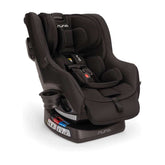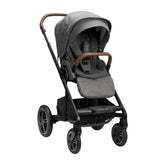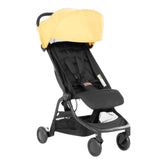Important Developmental Milestones For Toddlers: 2 - 3 Years

Updated 24 Dec 2024
The toddler years are a time of big changes in a child’s life. Seemingly overnight, they advance from a snuggly, sleepy baby to a chatty, mobile toddler. Because their growth occurs at such a fast pace, understanding what to anticipate and what is normal at each stage can provide reassurance and clues as to whether your little one is developing normally.
Milestones mark advancement in a number of areas, from physical to social to cognitive skills. If a toddler misses a milestone, it may allow caregivers and healthcare providers to identify potential delays early and implement necessary interventions. Let’s take a closer look at some of the physical, intellectual, and emotional milestones you can expect to see in your child between the ages of 2 - 3 years.
Developmental Milestones for 2-Year-Old Toddlers: Checklist
Two-year-olds are excited and eager to share their emotions with the people around them, whether it’s joy, affection, irritation, or objection. This is the time when they begin learning about rules and consequences. Be sure to stay calm and consistent with the limits you set. Be lavish with your praise when their behavior meets expectations or they master a new skill. While they may appreciate the company of other children, 2-year-olds frequently engage in independent play and love to copy whatever their grown-ups are doing.
Toddlers love to ask lots of questions and are constantly in motion. Their vocabulary will expand exponentially at this age. Reading to your little one often will help boost their language skills and improve their ability to listen well.
By this age, your toddler may be ready to begin the process of toilet training. They may become more curious about the potty, have more predictable bowel movements, and have dry diapers for longer periods. This typically happens over time and in small steps so offer encouragement and assistance when necessary.
Other typical milestone behaviors for a 2-year-old child include:
- imitating others, specifically adults and older children
- playing next to other children and beginning to welcome others into their play
- talking in basic sentences with two to four words
- recognizing shapes and colors
- following simple, two-step instructions, like “Pick up your clothes and put them in the hamper.”
- climbing
- standing on their tiptoes

Developmental Milestones for 3-Year-Old Toddlers: Checklist
A 3-year-old toddler shows a lot of curiosity about the world around them. (They ask “Why?” a lot at this age). Their vocabulary and language skills also become increasingly complex.
At three, your toddler will also begin developing an increased sense of independence and autonomy. They love to copy the adults around them and like to use things to pretend, like feeding toy food to a doll. They may show simple problem-solving skills, like using a stool to reach something.
As their motor skills progress, they may begin stacking toys, drawing circles or coloring with crayons, or even using safety scissors. Other typical milestone behaviors for a 3-year-old child include:
- sharing and taking turns when playing
- recognizing familiar things that are around them
- speaking clearly enough for other people to understand them and using two to three sentences in a conversation
- having an active imagination
- walking up and down stairs with one foot on each step
- running and climbing
Milestones Your Toddler Should Reach Before Preschool
Starting preschool is a major life event for little ones (and for caregivers)! To facilitate the change and make it less stressful for everyone, there are a few developmental milestones your child should reach before the big day to ensure that they’re ready. These skills include:
- sharing with others
- expressing their desires and needs
- listening and paying attention without distraction
- recognizing letters and numbers
- using manners, like saying “please” and “thank you”
These skills don’t have to be perfect yet – your little one will learn more during their time at preschool. The most useful skill you can arm your child with before preschool is to help them practice regulating their emotions. This includes things like teaching them how to ask for help when they need it and being okay with you leaving at drop-off time.

Helping Your Toddler Improve Cognitive Skills
Advances in your toddler’s cognitive growth are another milestone that indicates whether your little one is on track developmentally. Children this age have a better understanding of simple commands, are beginning to think for themselves, are expanding their imaginations, and are communicating better with others. You can engage them in a number of activities that help them improve their cognitive skills, including:
- using storytelling and play to broaden their imagination
- playing with dolls and stuffed animals
- playing with puzzles that have a few pieces
- drawing with crayons
- stacking blocks
- using toys with moving parts, like buttons and levers
- hiding and finding objects
- sorting objects by size and color
- singing songs and nursery rhymes
Potential Developmental Health Issues for Toddlers
Sometimes, missed milestones can indicate a potential developmental health issue. Approximately 17% of American children have some type of developmental delay or disability. These can include a variety of issues, such as:
- intellectual disabilities, such as Down syndrome, fetal alcohol syndrome, and fragile X syndrome
- development delays, such as expressive speech delay, receptive speech delay, fine motor or sensory processing delay, or gross motor delay
- autism spectrum disorder, a neurodevelopmental disorder that affects how individuals communicate, interact socially and behave
When a delay is identified, it’s essential to get treatment or intervention as soon as possible. Research has shown that the sooner the developmental services are started (such as speech therapy, physical therapy, or developmental preschool), the better the outcome.

When to See a Doctor: 2- to 3-Year-Old Milestone Red Flags
Parents and caregivers usually have the best insight as to when something may not be quite right. If you believe something is unusual with your child’s behavior or ability to learn, talk to your doctor as soon as possible.
Doctors use certain milestones to tell if a toddler is developing as expected. There's a wide range of what's considered normal, so some children gain skills earlier or later than others. A few signs that may indicate your toddler has a delay include:
- unstable walking
- problems interacting with other children or adults
- difficulty maintaining eye contact
- inability to follow simple instructions, like “stop” or “no”
- confusion about using simple objects, like a spoon
- losing skills previously mastered
- not using two-word phrases, like “eat dinner” after age two









